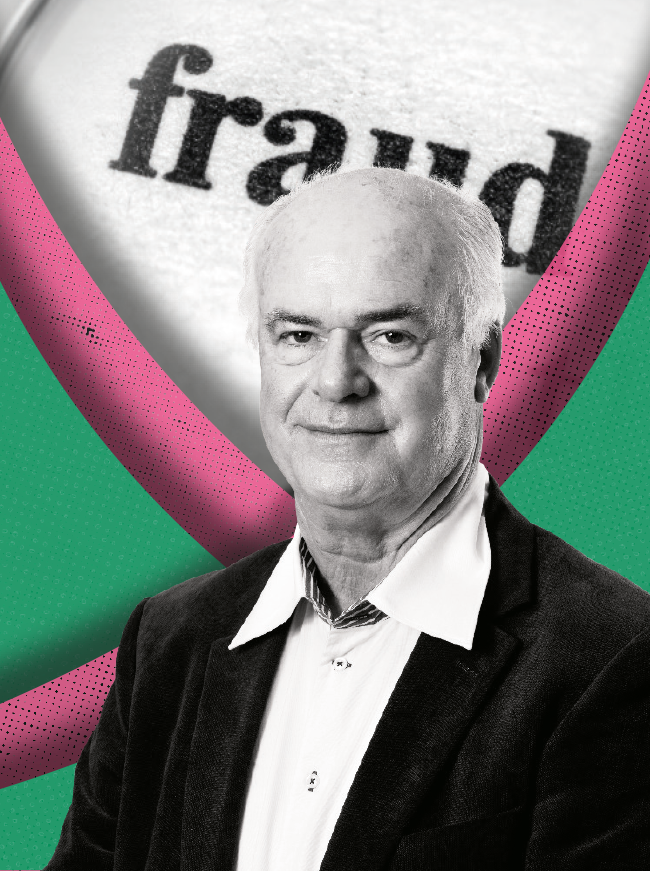One of the great things about the JSE, and stock exchanges generally, is that they overlay legislation and regulation with their own sets of rules and regulations that makes it much more difficult for the corrupt to perpetrate fraud, particularly on individual minority shareholders.
An important part of these controls is that there are deadlines on the submission of audited financials to be filed with the JSE. If the deadlines are not met the offending company may be suspended and delisted. In other words, it will not be able to raise further funds from the public.
Against this regulatory benchmark, unlisted companies are mostly the stock-in-trade of the unscrupulous. Unlisted companies, often cascading layers of more unlisted operations, are behind nearly every major scam, ranging from individual investment companies and involving a few hundred million rands, through to imploding property syndications, where billions of rands have been lost, mainly by pensioners.
It was the rules of the JSE that led to the delisting of the company Tigon, where an unlisted so-called investment company, Progressive Systems College Guaranteed Growth (PSCGG) was used to raise R250 million from the public that was used in turn to ramp up the share price of Tigon. PSCGG was headed by self-proclaimed investment guru Jack Milne, who was convicted and imprisoned for his part in the fraud. Tigon executive chairman Gary Porritt and fellow director Sue Bennett are currently standing trial on more than 3 000 charges under the Companies Act, Stock Exchanges Control Act and Income Tax Act, as well as fraud and racketeering, all relating to the collapse of Tigon.
The problem with unlisted companies is that the fraud can continue for many years, as there simply are not sufficient checks and balances to ensure early action. The key, however, to stopping financial fraud early are the requirements for audited accounts – both for listed and unlisted companies.
When auditors do not do their jobs properly, the chances of fraud increase exponentially. This is compounded when financial professionals, such as auditors, lawyers and credit assessment companies, assist in setting up structures that allow for the exploitation of investors.
Fidentia was a case in point. Lack of action taken by both lawyers and accountants not only allowed space for the fraud but delayed the placing of the company under curatorship by at least six months. In those six months, millions of rands more were squandered by convicted fraudster, J Arthur Brown. This was money that was due to mainly widows and orphans of deceased mineworkers – money that still needs to be recovered. In the Fidentia case, the accountant and sometime auditor Graham Maddock was sent to jail for his part in the saga. The problem is that this was an exception. It is seldom that professionals are punished in this manner for failing to do their jobs in stopping abuses.
It has taken the action of tough fighters to get the unconscientious to pay for their lack of diligence. A good example is lawyer Tony Mostert, who – as a curator and liquidator of plundered retirement funds – has successfully gone after both the unscrupulous beneficiaries of fraud and importantly, the financial services companies who allegedly failed to protect the funds placed under their care.
The general lack of both criminal and civil action against parties sometimes allows for an unacceptable conflict of interest in which professionals act as both advisers and policemen to a single client. This has been highlighted by the action (and inaction) of auditing and consulting company KPMG, where it was both advising the web of Gupta-aligned companies as well as auditing their books.
Initially KPMG attempted to face down the proof contained in leaked emails and diligent work by a handful of skilled journalists. However, it took Magda Wierzycka, chief executive of a listed financial services company, to announce publicly that she was firing KPMG as the company’s auditors to get the ball rolling, and other businesses have followed suit.
Hopefully what has happened with KPMG will focus a few more minds on the need to do business ethically. It was similar conflicts of interest that helped lead to the 2008 global economic crash. Among the guilty were credit rating agencies acting both as consultants and risk-raters of toxic sub-prime debt that was being melded into even more poisoned securitised bundles.
It is time that legislation is passed that prevents these conflicts of interest. No party should be allowed by law to play both a consulting role and that of a policeman or protector where the money of investors is involved. If they are found to have done so these organisations should be the first port of call to reimburse those investors who have suffered the consequences.








